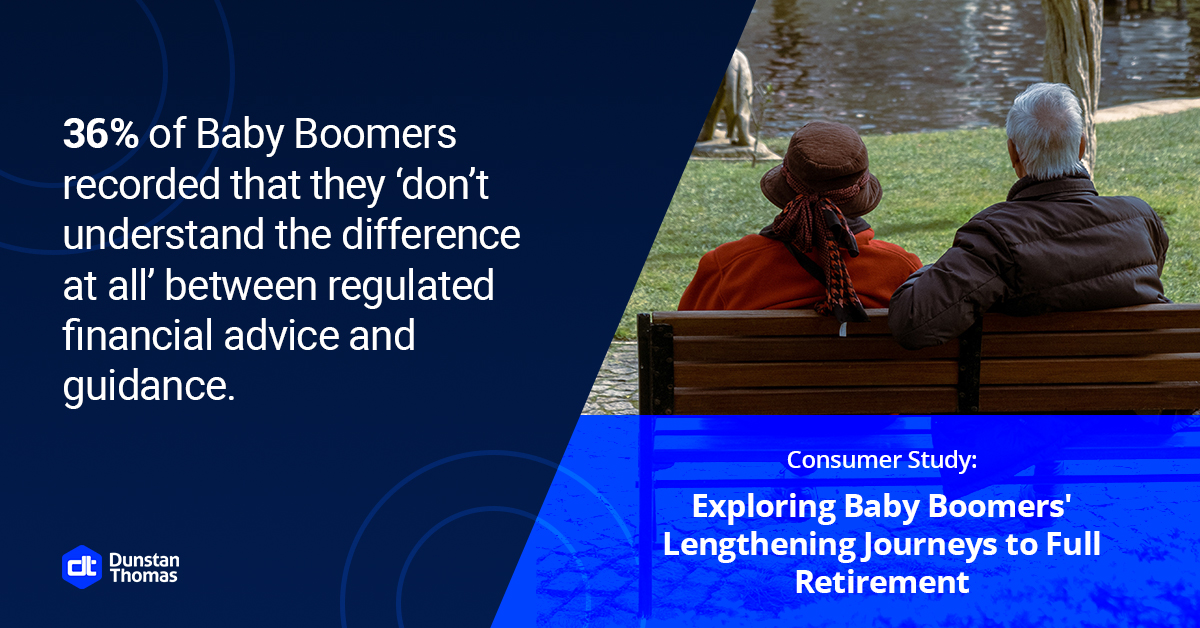Pension providers fail to engage baby boomer generation
5th Oct 2022
 Pension providers are failing to engage baby boomers, especially women, according to research from Dunstan Thomas.
Pension providers are failing to engage baby boomers, especially women, according to research from Dunstan Thomas.
It explored the level of engagement with both wake up packs and investment pathways. The level of engagement with wake up packs was poor for both genders, but is slightly worse among women. 34% of women and 28% of men were convinced that they had not received a pensions wake up pack from their provider at all.
This is despite the fact that all personal pension holders questioned were between 58 and 75 that means all should have received a wake up pack after turning 50. From then on, they should receive it every five years until they have fully crystalised their pensions. Engagement with investment pathways also looked poor. Nearly two years on since its launch, 64% of women and 57% of men who had already retired, confirmed that they had not been presented with the pathways options.
Dunstan Thomas director of retirement strategy Adrian Boulding said:
“Given the lack of engagement with wake up packs and investment pathways options to date, it makes sense to explore digital delivery of packs and pathways communications via secure web portals or mobile apps.
“In this way, it is much more likely customers will look at their pensions savings earlier; decide if they need to make changes and, with the help of digital projection tools (if non-advised) make changes to their contribution levels and underlying fund selections online, well ahead of starting their decumulation journeys.”
Poor Pensions Communications
 More broadly, baby boomers are unimpressed with pension communications. This feeling was more pronounced among women. A quarter of women and 16% of men categorised communications from their pension provider as “poor”.
More broadly, baby boomers are unimpressed with pension communications. This feeling was more pronounced among women. A quarter of women and 16% of men categorised communications from their pension provider as “poor”.
Dunstan Thomas said that one of the impacts of unengaging pension communications is that many policyholders are unclear of how much they will receive from their pension. They might not even know what type of pension they hold. For instance, 13% of female and 10% of male respondents were unable to identify what pension scheme they were saving into.
Besides, 61% of female and 50% of men aged 58-75 confirmed they had done no active financial planning for retirement beyond paying into their pension. In fact, 41% of female and 31% of male boomers do not understand the difference between financial guidance and fully regulated financial advice.
Further findings show that many boomers do not understand either the concept of derisking their portfolio close to retirement or the range of pension freedoms choices at-retirement. The study found that 70% of female boomers were keen on instant alerts being sent to their mobile phone to notify them of a tax policy changes which could affect their pots.
Moreover, 61% of them liked the idea of an instant mobile alert if their portfolio became unbalanced. Lack of engagement with pensions during working years can feed through to low retirement incomes.
Reliance on State Pension
The study found that a larger number of boomer age women appear to be fully reliant on the state pension for their retirement income. Among the 58-75 year-old female interviewed by Dunstan Thomas, 17% were reliant on their state pension entitlement alone in retirement. It compares with 10% of men of the same age group. An investigation of single women aged 58-75 found that 7% of the group relying on the state pension only had, on average, anticipated a total annual pre-tax household retirement income of just £10,241.50.
A previous study by the Pensions and Lifetime Savings Association carried out a similar investigation . The figure it found was slightly higher, at £10,900.
Boulding added:
“Sadly, it is probably too late for some female baby boomers currently retiring to do anything about the pensioner poverty revealed by Dunstan Thomas’ research.
“But for younger women, it’s vital that pension providers and advisers up their game on communications so that savers become aware of their future retirement income prospects and take more control of their own destiny while they still have time to make changes.”
Previous Article
Adrian Boulding
Director of Retirement Strategy at Dunstan Thomas
023 9282 2254
enquiries@dthomas.co.uk